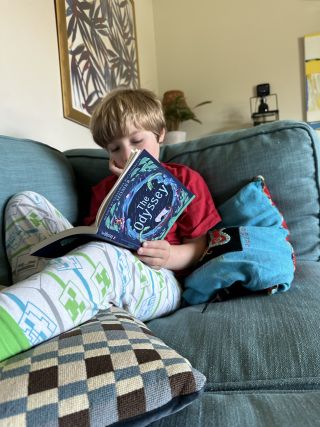Education
How Music Can Enhance Your Child’s School Success
Music can support learning in a variety of ways.
Posted May 30, 2024 Reviewed by Gary Drevitch

Why is it easier to recall lyrics to a song than to memorize a poem? What is the power of emotional connections to some songs we remember years later? How does awareness of making progress in a musical instrument sustain motivated learning effort? The answers to these questions can show you how to support children’s memory, mood, and learning—with music.
Music can promote buy-in to topics of study, opportunities to recognize the power of effort to progress when learning a musical instrument, boost moods, provide memory-enhancing tools, and even expand the brain’s creative potential.
Music Provides Motivation and Improves Mood
Music gives opportunities for children who are having a hard time in school to experience the motivating emotional highs of awareness through their progressive achievement. In addition, information acquired or mentally manipulated through the symbolic representations of music can construct into expanded neural networks for expanded memory and creative insights.
Dopamine Increases Pleasure in Learning
The dopamine-reward system enhances the experience of pleasure, satisfaction, and increased motivation and memory. The desire to seek the pleasurable response to dopamine release can be enhanced by music to facilitate motivated learning and enduring memory.
You can promote your child’s positivity and perseverance by tapping into the power of the dopamine reward cycle. Dopamine boosters associated with learning include choice, optimism, movement, positive interactions with peers, being read to, acting kindly, expressing gratitude, humor, and listening to or playing music.
3 Benefits of Music Incorporation
Music can boost interest in what is to come and and enhance enthusiasm that can keep children’s brains engaged and receptive to learning.
1. More joyful and powerful learning. Playing music that children enjoy, as they do homework or learn new topics and skills, encourages greater dopamine-enhanced experiences. You can provide music related to the school topic, such as a Strauss waltz if they are about to study Austria, or jazz before a discussion of The Great Gatsby. You can play theme music from a game show, such as Jeopardy, before they review for a test.
2. Practice makes progress. Share with your children the following concept: “A process called neuroplasticity is ready to work for you to make your learning stronger and more useful. Every time your brain practices a skill or reviews new learning, the memories and actions strengthen.”
Awareness of their capacity to change their brains can be exemplified through past successes. Encourage children to reflect on their progressive success, such as when they learned to ride a bicycle or to keyboard a computer or phone. Learning a musical instrument is a powerful way to remind them of how their sustained practice over time improved their skills. In addition, if they are motivated to learn a new instrument, you can record their playing at intervals so they can hear for themselves, and be reminded, that practice did result in their progress. These experiences promote their connections, competence, and confidence that they are capable of building their understanding and skills—and that they are changing their brains in positive ways.

3. Extended memory and creativity. It is easier to recall the lyrics to a song than to memorize a poem. When children have opportunities to put information they are learning into a familiar tune, rhyme, or song those memories are enhanced. When movement, such as gestures, dance movements, or body position (turn left/right or moving to another place in the room), are used, they add another storage locker for the new information and further increase access to memory.
A study* about the brain’s increased interconnectivity during musical improvisation is compelling: Skilled musicians were placed in a brain scanner and given a keyboard with the request to improvise new music. When they did so, their fMRI scans showed wide-ranging activation and extensive interconnectivity during periods of improvisation far beyond that displayed when performing known melodies.
Additionally, multisensory experiences that include music can extend wider-ranging memory access. When information is learned, practiced, or applied through different senses (hearing, seeing, touching, moving) the memories are stored in multiple regions of the brain. This extended network of information can then be accessed by way of any one of the sensory experiences through which it was incorporated. Incorporating musical experiences as part of learning may increase memory and potentially extend the brain’s interconnectivity of knowledge, promoting recognition of relationships that might not have otherwise been recognized—and in doing so promote creative insights.
What a wonderful opportunity parents have to utilize music to encourage children’s engagement, memory, and experiences of delight from moments of insight. As you integrate more music into your children’s studies, they can engage with learning more joyfully and successfully, potentially expanding their learning into creative discoveries and innovations.
References
* Limb, C. J., & Braun, A. R. (2008). Neural substrates of spontaneous music performance: An fMRI study of jazz improvisation. PLoS ONE, 3(2), 2-9.


